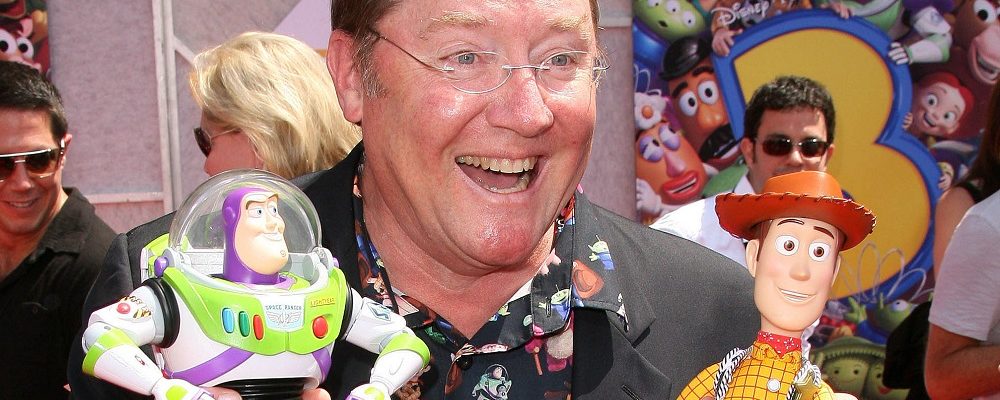A fresh Hollywood HR controversy erupted on 9 January, with the news that former Pixar and Walt Disney Animation Studios CCO John Lasseter had been hired to lead the animation division at rising production house Skydance. [1]
The revelation came just six months after Lasseter announced that he would vacate his Disney-Pixar post at the end of 2018, following allegations of inappropriate touching, hugging and kissing. [2] Indeed, Lasseter sealed his Skydance deal only nine days after the expiration of his Disney-Pixar contract.
In a memo to staff, Skydance founder and CEO David Ellison said: “We are certain that John has learned valuable lessons and is ready to prove his capabilities as a leader and a colleague.” In a separate statement, Lasseter said: “I have spent the last year away from the industry in deep reflection, learning how my actions unintentionally made colleagues uncomfortable, which I deeply regret and apologise for. It has been humbling, but I believe it will make me a better leader.” [3]
However, that cut no ice with the #MeToo-driven campaign group Time’s Up, which said in a tweeted statement: “Skydance Media’s decision to hire John Lasseter as head of animation endorses and perpetuates a broken system that allows powerful men to act without consequence. At a moment when we should be uplifting the many talented voices who are consistently underrepresented, Skydance Media is providing another position of power, prominence and privilege to a man who had repeatedly been accused of sexual harassment in the workplace.”
It added: “People often ask when a man who has abused his power ‘gets’ to ‘come back’. There is no simple answer. But here are a few first steps: 1) Demonstrate true remorse; 2) Work deeply to reform your behaviour; 3) Deliver restitution to those you harmed. That’s the bare minimum.”
Time’s Up concluded: “Hiring decisions have consequences. And offering a high-profile position to an abuser who has yet to do any of those things is condoning abuse.” [4]
It has since emerged that Skydance consulted Time’s Up on Lasseter’s appointment. According to leading trade journal Variety, “Skydance wanted to get Time’s Up’s thoughts about what rehabilitation would look like for a figure accused of abusing his power. However, sources close to Time’s Up said the organisation grew uncomfortable because they believed that Skydance was looking for the group’s support for Lasseter’s hire.” [5]
In a subsequent article of 14 January, Variety reported that Ellison and Lasseter had held a town-hall meeting that day at Skydance Animation’s LA HQ, in which employees quizzed Lasseter about the circumstances behind his Disney-Pixar departure. “The conversation was long and ‘heavy’ in tone,” said the journal. “As the meeting disbanded, many employees, who were on their feet for its duration, appeared exhausted. It was unclear if Lasseter had been specific enough about what lessons he had learned … and how he intended to earn back the trust of the animation community.” [6]
With all this in mind, how should any organisation in a similar position know that it is the ‘right time’ to secure the services of an ousted leader who has been accused of sexual harassment?
The Institute of Leadership & Management head of research, policy and standards Kate Cooper says: “This story is a good example of concerned individuals in a particular business community judging someone by his actions rather than his words. It’s all very well for Lasseter to articulate remorse and regret, and to assure his peers – and his wider sector – that he has changed. But we will only know that when his actions support those words.
“So, if we turn to his new employer, we can see that Skydance has decided to gamble on believing the line that Lasseter provided in his answers to job-interview questions, rather than examine the evidence of his track record.”
Cooper notes: “We all know how persuasive the compelling job interviewee can be. But we should always remember that it’s not so much what you say at interview as what you are able to deliver. And Lasseter’s track record isn’t one that warrants such a swift disregard of the relevant allegations. As Time’s Up points out, the appointment suggests there’s such a scarcity of talent that we need these important, powerful men to prop up the industry. Do we really, when one of them has demonstrated that power is something with which he can’t be trusted, because he misused it to the cost of his colleagues’ wellbeing?”
She adds: “Given the extenuating circumstances, I would not give Lasseter the job until he has made amends in a way that we can clearly see is evidence based. Admissions of contrition – however heartfelt and well delivered – are not evidence based. We at the Institute believe that anyone can improve and become a better leader. That’s one of the key drivers behind our existence: to inspire great leadership everywhere. And part of that is to encourage people to recognise that leadership is something that must be learned, practiced and constantly worked on.
“So, never write people off. But do look for a robust evidence base to back up their claims of transformation.”
For further insights on the themes raised in this blog, check out the Institute’s resources on authenticity
Source refs: [1] [2] [3] [4] [5] [6]
Image of John Lasseter at the Toy Story 3 world premiere courtesy of s_bukley, via Shutterstock

